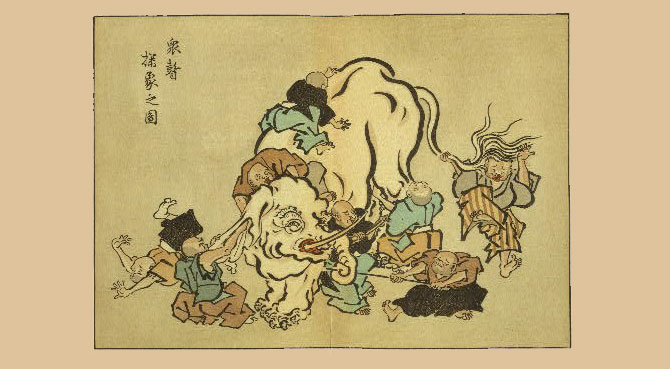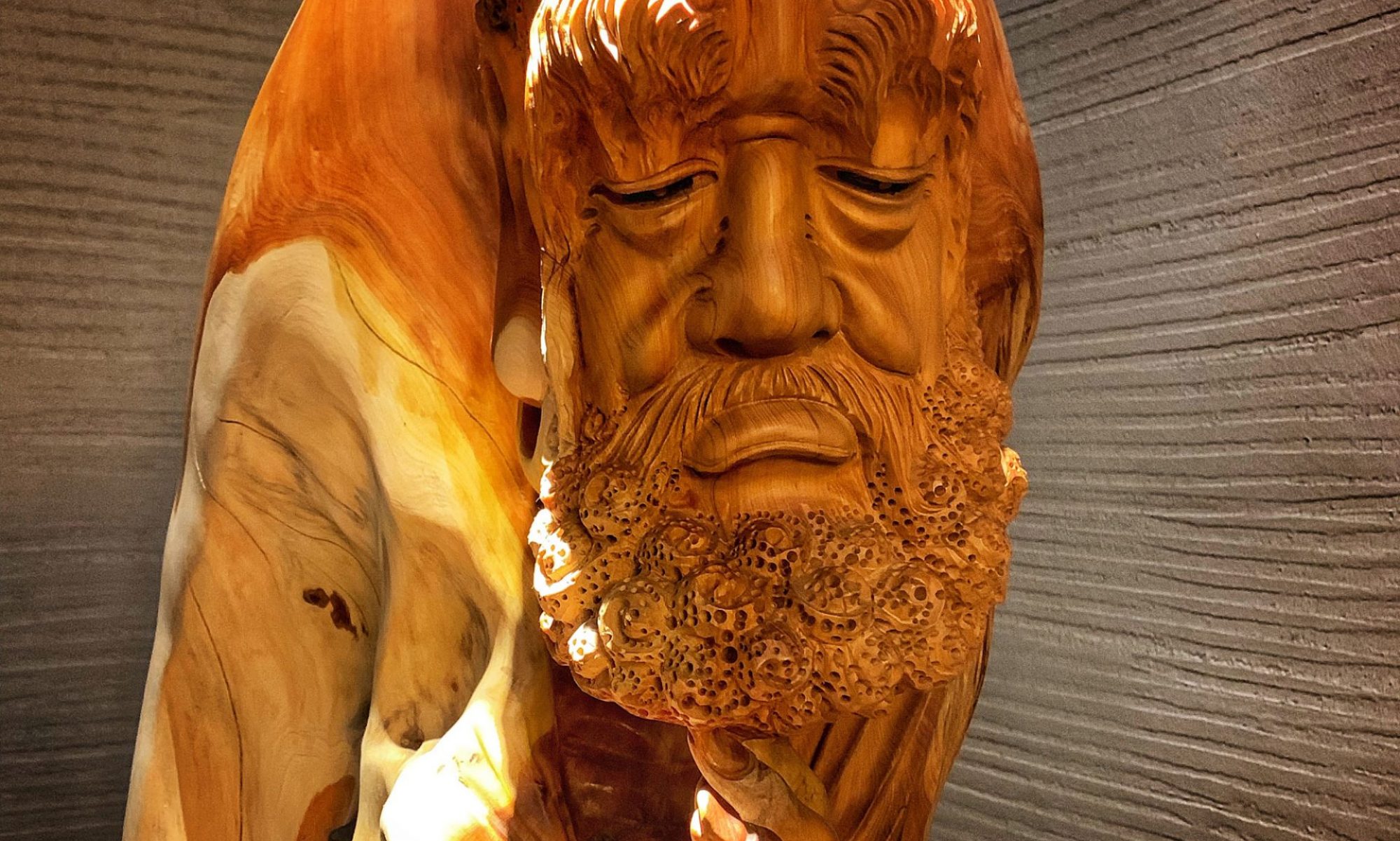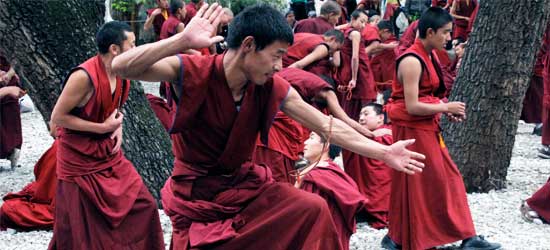
Ananda, the close attendant to the Buddha, once exclaimed with joy how easy it was to understand the matrix of the mind; of which the Buddha himself retorted that, without the arising of the Awakened One, such statement cannot be possible.
Looking back on my own journey, I fully understand where the Buddha was coming from. Without right information and right practice, it is impossible to bring forth understanding, not to mention realization. The journey itself is profound, and most times, difficult. Without graduation of proper steps, missing the mark is potentially high. The word sin, to mean missing the mark is an appropriate statement to denote the metaphor of an archer aiming his arrow at the bull’s eye. Imagine the little space at the centre in comparison to what is around it. To hit into those area is much easier than to land itself at the bull’s eye. And that is exactly what a spiritual journey can entail when one is not accurate in his or her path.
Within my own limited observation, there is a pathway that all of us have to begin and continue with. And that too, can only come into the picture when one takes full responsibility of one’s mind – if not all the time, at least as frequent as one can.
The pathways are the 7As in sequential order:
Awareness
The ability not to forget to be in the present of one’s own mind and body experiences. For many this is tiresome – not that it is difficult to remember – but rather it is difficult to stay connected to the inner being as the mind is consistently addicted to the external experiences. Ironically, all our experiences are within but somehow the mind interprets the experiences as external, eg. smell – we deem the outside object as the cause of our like or dislike, not realizing that the cause in actuality is within us. The object is merely the effect of our inner perceptions.
Awake
Once one is aware of the present, one is called to be awake to what is occurring at the mind level. This is a skill that needs to be trained. Many a times the initiator tends to give attention to the concept rather than the reality of what is here at the moment. Even experienced practitioners tend to miss the mark at this level. For instant, seeking for companionship to share in the spiritual journey is an effect of loneliness, which is more a truer experience occurring in the present. All others are storyline camouflaging what is needed to be addressed and aware of.
Acknowledge
When one passes the test of the above two, one is confronted with another difficulty – to recognize it exactly as it is instead of taking personal identification over or with it. This level is pretty tricky as the mind can be sly to conjure numerous meanings out of what is. For example the feeling of hurt. It is difficult to acknowledge hurt as an experience instead of identifying oneself being hurt by someone. Hurt is a painful experience, no doubt about it – but most of the time we don’t acknowledge it as that – just as an experience – and instead we want someone to be responsible for it. Other times we brush it off, seeing the feeling as trivial or even wrong to have. To recognize hurt as a painful experience is wisdom at work as there is a clear acknowledgment that it is something that only oneself is experiencing and has nothing to do with any other person. It is also to acknowledge that these are the stuffs that makeup the personality of each individual and whether they are worth sustaining. One can’t remove it by pushing it away. Only through the process of acceptance can it be transcended.
Acceptance
This fourth level too has its own hardship. Closely connected to acknowledgment, acceptance has the ability of holding the bull by the horn, in its literal sense. It is the ability to take it fully as it is, in other words, accepting the experience with detachment, to mean not taking it personally. The word detachment and acceptance seems contradictory – but that is exactly how the healing takes place. In this world of duality, the opposites are merely a different perspective of another. When there is resistance, there is holding on as its opposite, occurring at the same time.
Acknowledgement may not necessary lead to acceptance, hence it is considered a level of its own, for one to address. It is like finally making an effort to open a closet of unwanted stuffs – whether one can accept it is another thing all together – both are leading on but may not necessary occur concurrently.
Note that at every level, commencing from the first, the ego has every opportunity of setting in, interrupting or ending the process for wisdom to finally come into fruition.
Awe
In this final process, when acceptance comes into fullness, one is able to catch a glimpse of what is in stored – that the things that we have been pushing away in the past, seeing them as real, turns out to be an illusion created by past conditioning – that in it there is no reality, no you or me, except an imagination of the mind. It is at this point that wisdom takes over – the issue disentangles itself, without one needing to do anything about it. The experience is liberating, a revelation and self-evident. One may then realize how the nature of the mind works – that it is not by running away is the world healed, but by facing is the world understood. Awe is an appropriate word to imply it is not one’s doing, which is ego-centric by nature, but God’s will – to mean the opposite of ego, or in the Buddhist context, wisdom that is free from defilements.
“Awe should be reserved for revelation, to which it is perfectly and correctly applicable.”
– A Course In Miracles.
Absurdity
When awe is comprehended, it dawns upon one how the mind game perpetuates its own suffering. One sees the absurdity of the game – that all projections are denials of what is within. And this denial is the cause of suffering. When more attention is being paid to the mind, one sees the familiar pathways the mind consistently takes that brings about ancient pain. One will be naturally led to take heed of the mind and not succumb to its conditionings. Freedom is eminent at this level. It is by not realizing the nature of the mind that one is trapped continuously by its conditioning. (read also Nothing but Toys)
Atonement
At one with God. Not that there is something or someone for one to merge but rather one came out from the dream one created by oneself. A play of delusion, a fabrication of lies that one unconsciously formed throughout the journey of ignorance – of non awareness, awakefulness, acknowledgment and acceptance.
And it is in this experience of atonement that faith in one increases to pursue the journey of awareness closer and deeper and hence the 7As snowballs itself, leading one to finally finding oneself – awakened, enlightened. And naturally, awareness becomes the refuge for oneself, for the world, for the highest benefit of all.
“Know what is in front of your face, and what is hidden from you will be disclosed to you.
For there is nothing hidden that will not be revealed.”
– Pursah’s Gospel of Thomas



